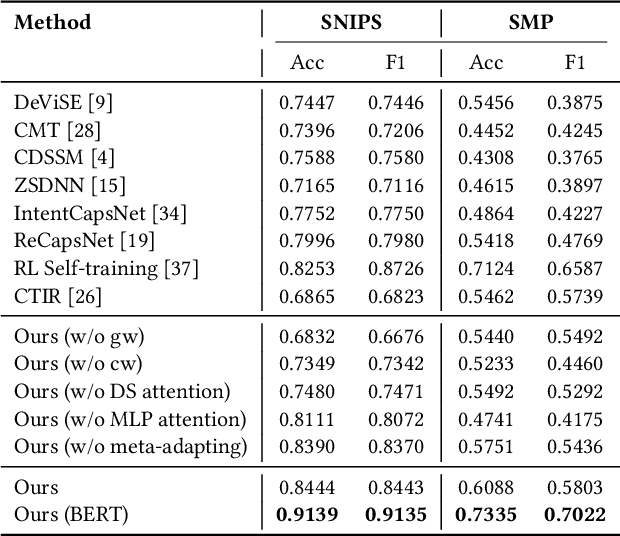A Simple Meta-learning Paradigm for Zero-shot Intent Classification with Mixture Attention Mechanism
Paper and Code
Jun 05, 2022



Zero-shot intent classification is a vital and challenging task in dialogue systems, which aims to deal with numerous fast-emerging unacquainted intents without annotated training data. To obtain more satisfactory performance, the crucial points lie in two aspects: extracting better utterance features and strengthening the model generalization ability. In this paper, we propose a simple yet effective meta-learning paradigm for zero-shot intent classification. To learn better semantic representations for utterances, we introduce a new mixture attention mechanism, which encodes the pertinent word occurrence patterns by leveraging the distributional signature attention and multi-layer perceptron attention simultaneously. To strengthen the transfer ability of the model from seen classes to unseen classes, we reformulate zero-shot intent classification with a meta-learning strategy, which trains the model by simulating multiple zero-shot classification tasks on seen categories, and promotes the model generalization ability with a meta-adapting procedure on mimic unseen categories. Extensive experiments on two real-world dialogue datasets in different languages show that our model outperforms other strong baselines on both standard and generalized zero-shot intent classification tasks.
 Add to Chrome
Add to Chrome Add to Firefox
Add to Firefox Add to Edge
Add to Edge